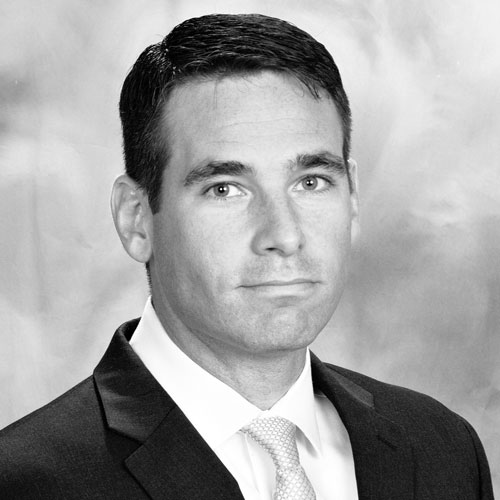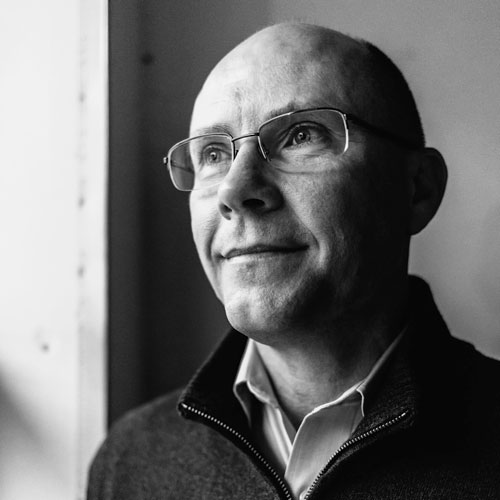Aviation is one of those industries solely inhabited by people who are passionate about their work. The thread that ties it all together is nostalgia, according to David Crull. “There’s often a very personal connection in terms of what it represents to them,” the chief financial officer says. “Everyone has a story, whether it’s memories of picking up their beloved grandparents from the airport or flying somewhere every summer for family trips. It’s a truly dynamic field and an industry that can challenge you in so many different ways.” Crull would know—he leads the financial team at AeroTurbine, an AerCap subsidiary that retracts the remaining value of retired aircrafts.

Crull began working in aviation upon exiting the military and has his own personal story in relation to the aviation field. His first job in the industry was as an aviation mechanic who worked the midnight shift at Delta Airlines. When his children were very young and they saw a plane overhead, Crull would point to the sky and say with a wink, “Your dad worked on that airplane.”
AeroTurbine’s CFO uses a long list of adjectives to describe working in aviation: dynamic, captivating, exciting, robust—it’s this last one that Crull says enabled him to move up the ladder, going from working those late nights as a mechanic to sitting at the leadership table. He claims the industry is robust since he was presented with so many opportunities along the way—it was just a matter of opening himself up to the possibilities. It also required hard work and being suited for operating at a high level, which Crull demonstrated with ease during his time with Spirit Airlines.
Crull was a major player on the financial leadership team during the Spirit Airlines turnaround, and he’s currently doing the same thing for AeroTurbine. When he joined the company in 2009, it was in the beginning stages of a transition that took it from the likes of a very small company to a subsidiary of a company listed by the US Securities and Exchange Commission.
Since Crull first joined, AeroTurbine has made significant investments in its processes and global infrastructure, which more than doubled its revenues. After being acquired by the Netherlands’ AerCap in 2014, AeroTurbine made further improvements to the underlying business and work to continue growing its enterprise value.
Members of an aviation company’s C-suite need to be able to check a number of different boxes to be successful, according to Crull. In addition to a multitude of technical requirements, they need to be quick thinkers and comfortable working within a fast-paced industry. It’s not for everyone, says Crull, who points to his time in the US Marines as a critical success factor.
“That’s probably the one all-encompassing experience that prepared me for the various roles I’ve had throughout my career, including a role like this. It was an opportunity to learn how to adapt to changing environments, and I was constantly being presented with significant leadership opportunities at a very young age,” Crull says, later adding with a laugh, “In many ways, my time in the Marine Corps really helped establish a strong ‘mental’ pain threshold, which is an absolute must-have as a CFO.”
The US Marines aren’t known for walking on eggshells around new recruits, which may be part of the reason why the CFO says one of the hallmarks of his leadership style begins with a candid self-assessment. Crull wants AeroTurbine’s employees—and aspiring leaders—to be very honest with themselves about their strengths and weaknesses, not just for the sake of it, but to have a clear understanding of the work that still needs to be done for improvement. That way, they focus on developing in the right direction. Having the flexibility to adapt is very important to the CFO, and he always strives for it in himself and on his team as well.
This is an interesting time for AeroTurbine. When Crull first joined, one of the top priorities was simply to get the team in place. Since then, he’s been the finance lead in major acquisition activity and involved in the refinancing of more than a half-billion dollars in debt.
Members of the C-suite are often the faces of the company, and as CFO, Crull says he understands the huge responsibility of that designation. Crull wants to use his leadership role to continue pushing AeroTurbine in new, exciting directions.
“We’re a market leader, but in the spectrum of a $3.5 billion aftermarket, that clearly shows how fragmented things remain. I think that fragmentation presents a significant amount of both opportunity and risk right now,” Crull says. “We’ve got our work cut out for us, and it will take a tremendous amount of preparation, discipline, and grind. We’ve made the necessary investments, and the next step is simply taking advantage of all the market has to offer us. That said, we’ve got the road map laid out, and we’re confident we will continue to create profitability and increase shareholder value.”

